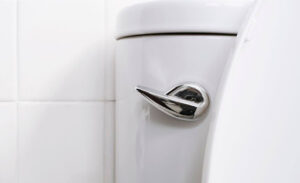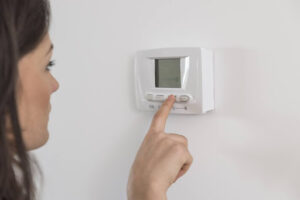Hard water can wreak havoc on your home, causing problems that range from annoying to downright dangerous. Scale buildup in pipes, appliances breaking down prematurely, dry skin and hair, and even potential health risks are just a few of the issues you might face. As you search for solutions to combat these hard water woes, you’ll likely come across two main options: water softeners and water descalers. But which one is the right choice for your home? Let’s dive into the details.
What Is a Water Softener?
A water softener is a device designed to remove excess minerals, primarily calcium and magnesium, from your water supply. These systems use an ion exchange process to replace hard water minerals with sodium ions. The heart of a water softener consists of two main components: a resin tank and a brine tank.
In the resin tank, tiny resin beads are charged with sodium ions. As hard water flows through the tank, the resin beads attract and hold onto the calcium and magnesium ions, releasing sodium ions in exchange. This process effectively “softens” the water by removing the hardness-causing minerals. The brine tank holds a salt solution that’s used to regenerate the resin beads periodically, maintaining the system’s effectiveness over time.
What Is a Water Descaler?
A water descaler, also known as an electronic water conditioner or saltless water softener, takes a different approach to addressing water hardness. Unlike traditional water softeners, descalers don’t actually remove minerals from the water. Instead, they aim to alter the chemical structure of the minerals to prevent them from sticking to surfaces and forming scale deposits. Water descalers typically use electromagnetic waves or other technologies to change the way minerals behave in the water. The idea is that by altering the mineral structure, scale buildup in pipes and appliances can be reduced or prevented.
The Biggest Difference Between the Two
The primary distinction between water softeners and water descalers lies in their approach to treating hard water.
Water softeners physically remove calcium and magnesium ions through the ion exchange process, replacing them with sodium ions. This results in genuinely softened water with a reduced mineral content. The softened water feels noticeably different, making it easier to lather soap and potentially improving the feel of your skin and hair.
On the other hand, water descalers don’t remove any minerals from the water. They attempt to change the behavior of the minerals without altering the water’s chemical composition. The water’s hardness level remains unchanged, and you may still experience some effects associated with hard water.
Water Softeners: Why They Are Such a Beneficial Option
Water softeners offer numerous advantages that make them a popular choice for homeowners dealing with hard water issues. Here are 5 key benefits:
- Reduced scale buildup: By removing hardness minerals, water softeners effectively prevent scale deposits in pipes, appliances, and fixtures. This can extend the lifespan of your plumbing system and appliances like washing machines and water heaters.
- Improved cleaning efficiency: Softened water helps soap and detergents lather easily, leading to more effective cleaning and potentially reducing the amount of cleaning products you need to use.
- Better for your skin and hair: Many people report softer skin and more manageable hair after installing a water softener, as the reduced mineral content is less drying and irritating.
- Energy savings: By preventing scale buildup in water heaters and other appliances, water softeners can help maintain their efficiency, potentially leading to lower energy bills.
- Protection for plumbing and appliances: Softened water is less likely to cause damage to pipes and appliances, potentially saving you money on repairs and replacements in the long run.
Water Descalers: Why They Work for Some
While water descalers may not offer the same level of benefits as water softeners, they do have some advantages that make them appealing to certain homeowners. Water descalers are generally easier to install and maintain than traditional water softeners. They don’t require salt or other chemicals, making them a low-maintenance option. For those on a low-sodium diet or concerned about adding sodium to their water supply, descalers offer an alternative approach to addressing hard water issues without introducing additional sodium.
So Which One Should I Choose?
When choosing between a water softener and a water descaler, water softeners are generally the superior option for most homeowners. The key advantage of water softeners is that they actually remove the problematic minerals from your water, providing a comprehensive solution to hard water issues. Unlike descalers, which only attempt to change mineral behavior, water softeners deliver genuinely softened water with all the associated benefits.
Water softeners offer more reliable and proven results in combating scale buildup, improving cleaning efficiency, and protecting your plumbing system and appliances. While descalers may have their place in certain situations, for those seeking the most effective solution to hard water problems, a water softener should undoubtedly be your choice.
Universal Home Experts Are Your Water Softener Experts in Houston, TX
Where do you get your water filtration system? Try Universal Home Experts. We specialize in providing the best water softener and whole-home water filtration system installations for homeowners in Houston, TX. We can help you choose the best water filtration system with our selection of high-quality water softeners designed to combat the effects of hard water effectively. Speak with Universal Home Experts today to explore your options for cleaner, softer water.



